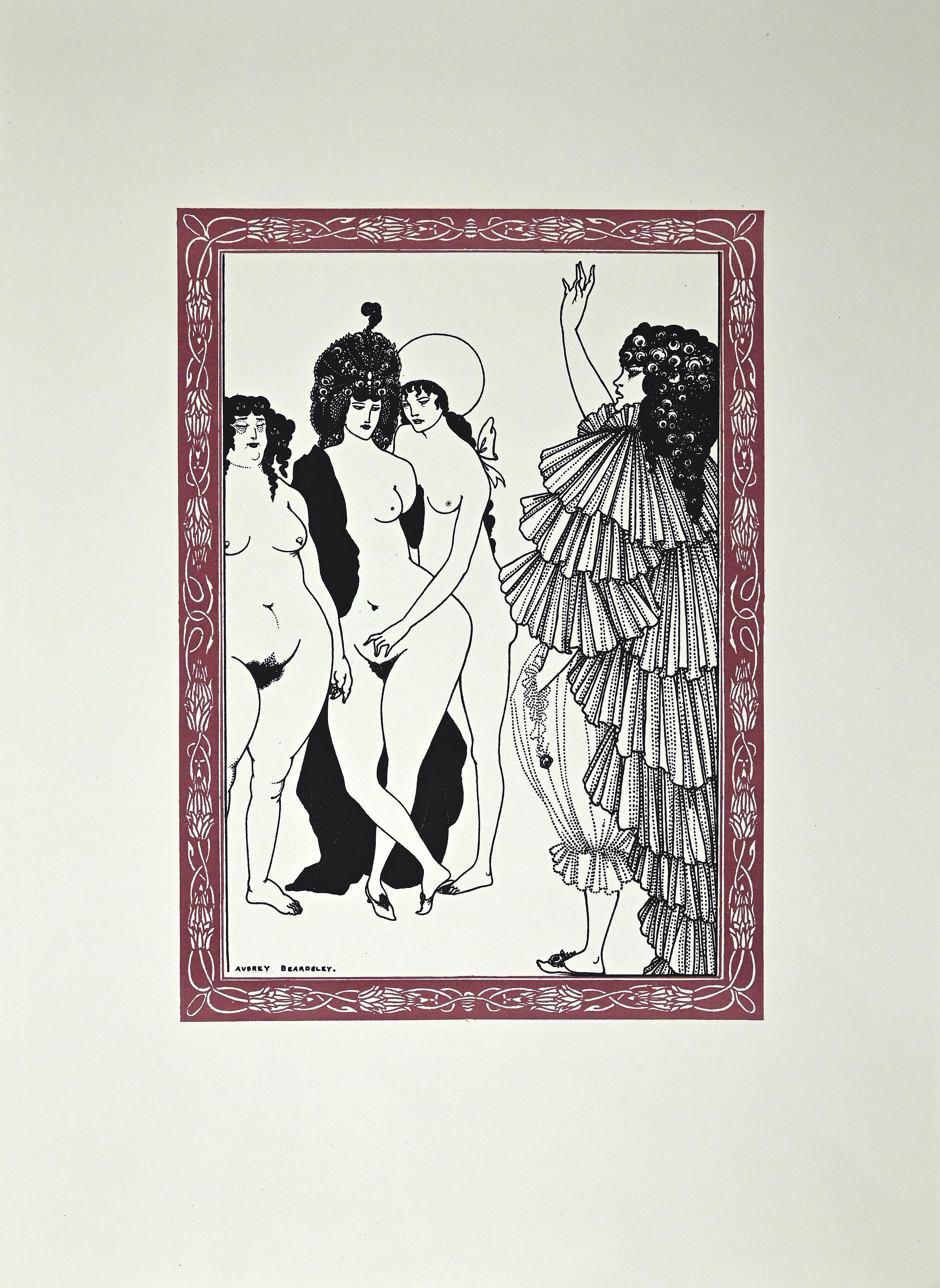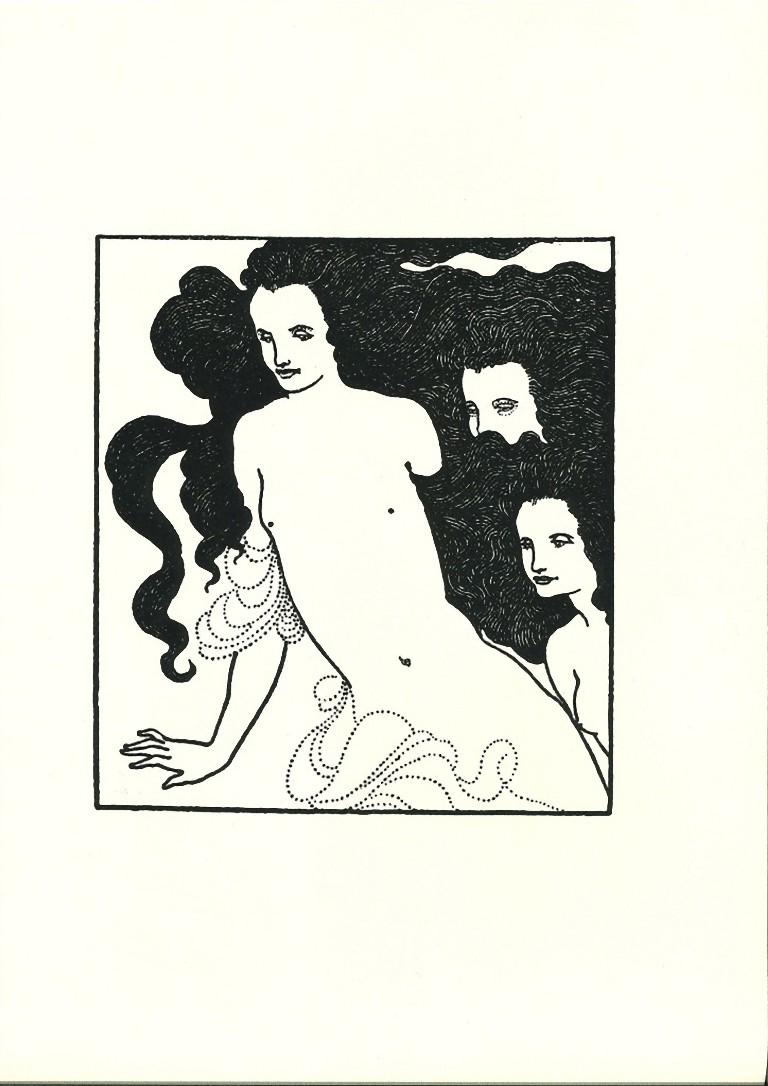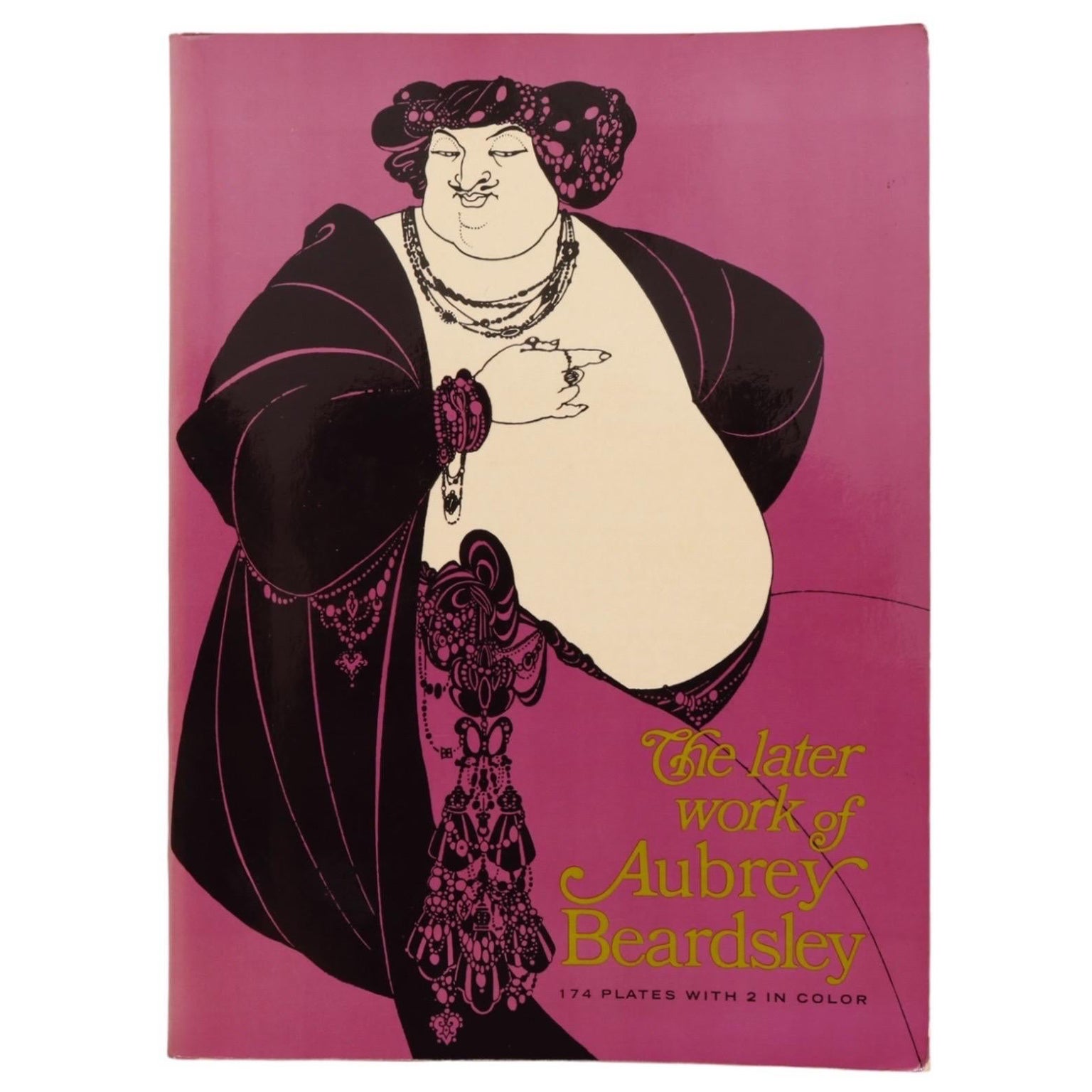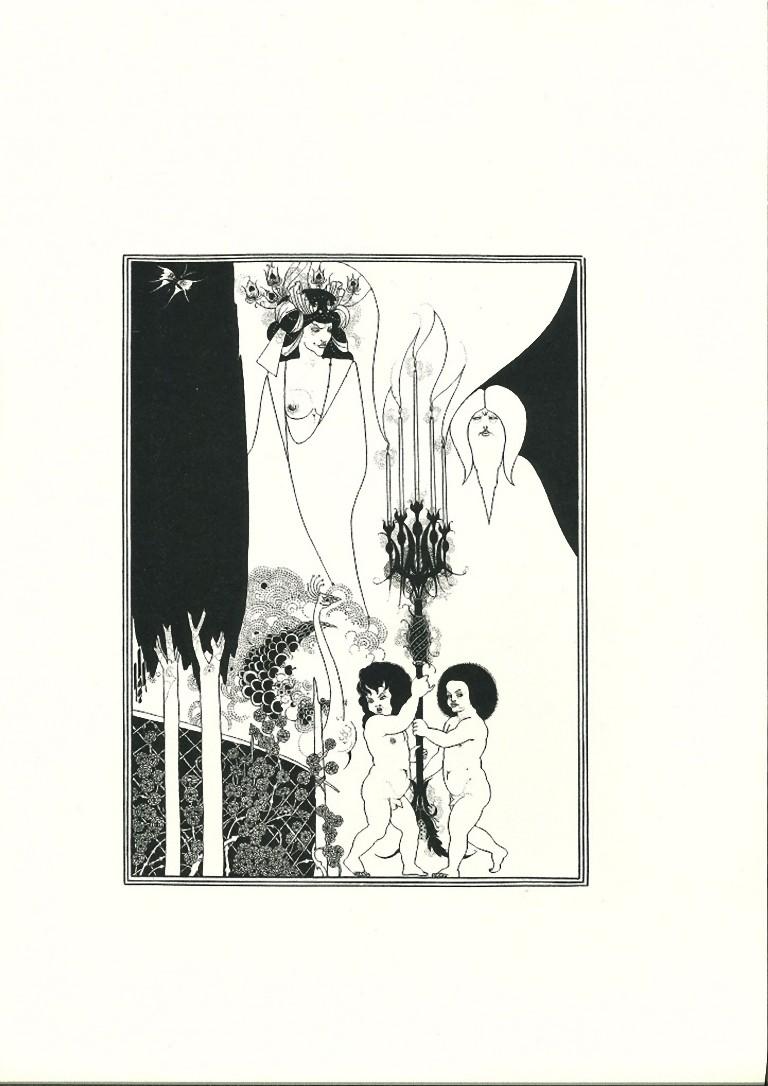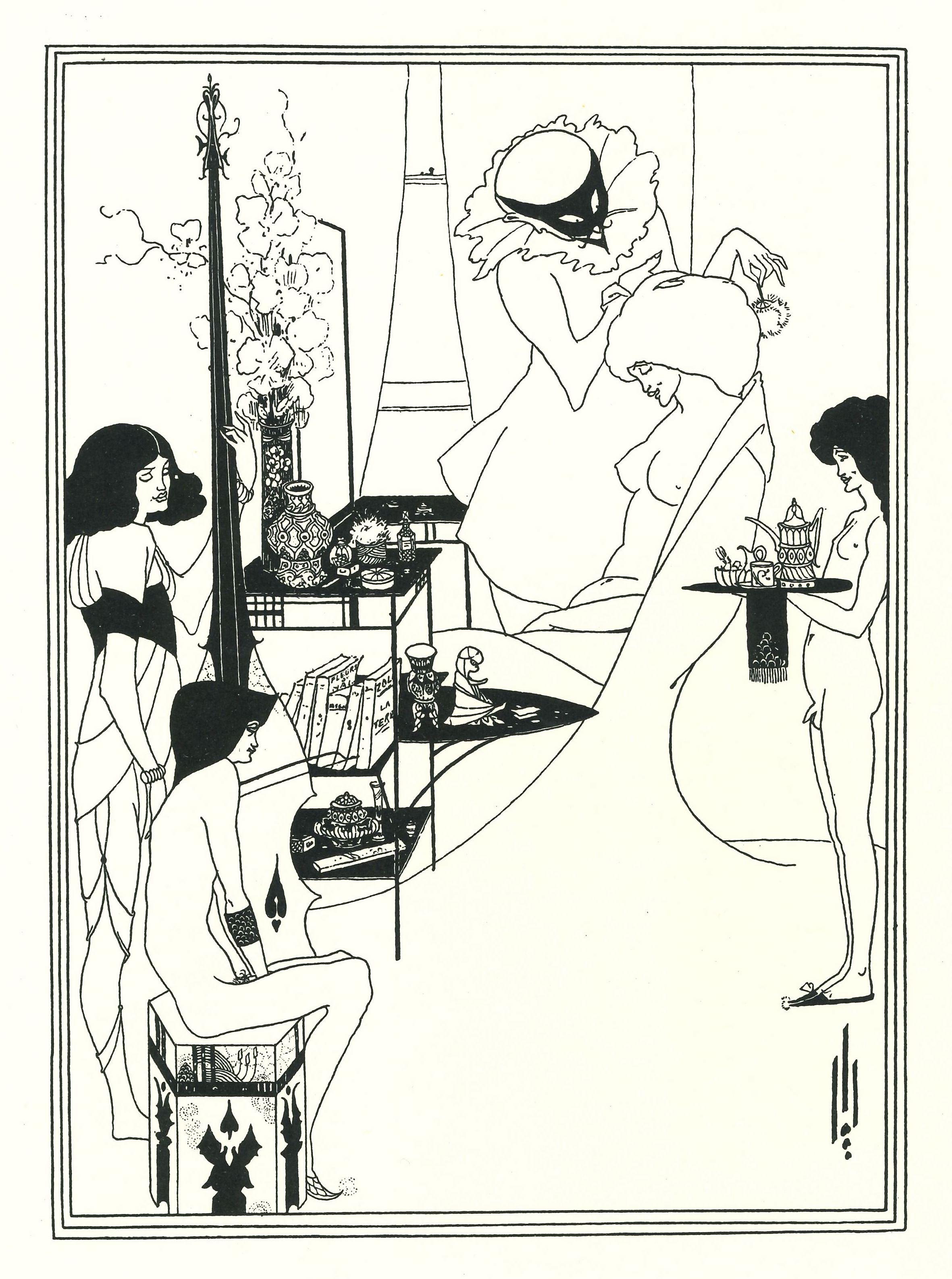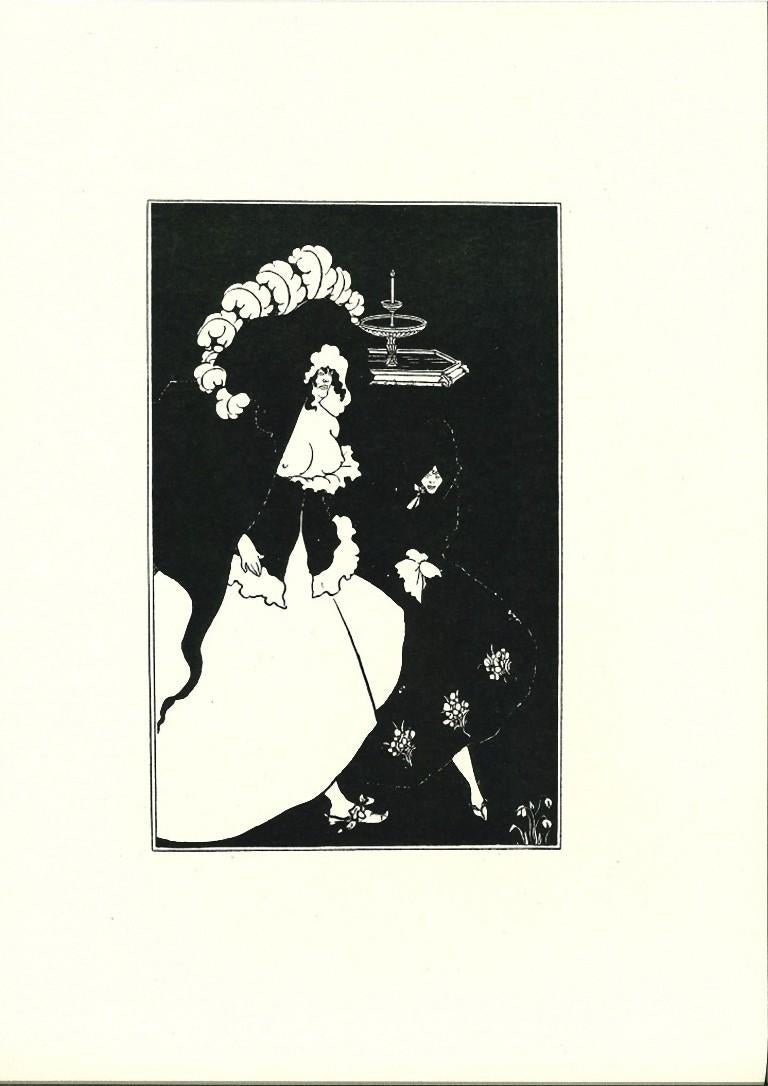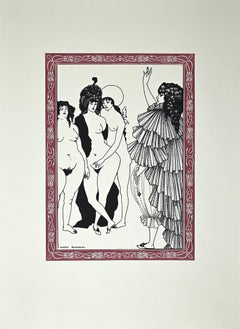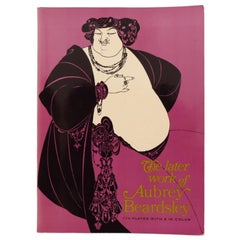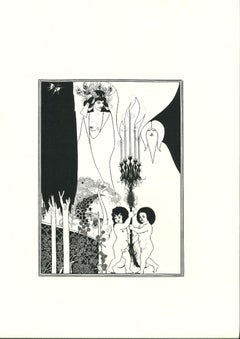Items Similar to Ali Baba - (Cover design for "The Forty Thieves) - Serigrafía
Want more images or videos?
Request additional images or videos from the seller
1 of 20
Aubrey Vincent Beardsley (1872 - 1898)Ali Baba - (Cover design for "The Forty Thieves) - Serigrafía
$3,563.72
£2,648.86
€3,000
CA$4,946.64
A$5,549.19
CHF 2,869.10
MX$66,926.28
NOK 36,500.90
SEK 34,186.56
DKK 22,837.92
About the Item
La serigrafia va firmada a plancha
Se presenta enmarcada
Medidas de la serigrafía: 68 x 52 cm.
Medidas del marco: 83 x 63 cm.
El estado tal cual se aprecia, con algunas faltas y manchas por el paso de los años
- Creator:Aubrey Vincent Beardsley (1872 - 1898) (1872 - 1898, British)
- Dimensions:Height: 32.68 in (83 cm)Width: 24.81 in (63 cm)Depth: 0.79 in (2 cm)
- More Editions & Sizes:68 x 51 cm. - Edición abiertaPrice: $3,564
- Medium:
- Movement & Style:
- Period:
- Condition:
- Gallery Location:Sant Celoni, ES
- Reference Number:1stDibs: LU2801215964752
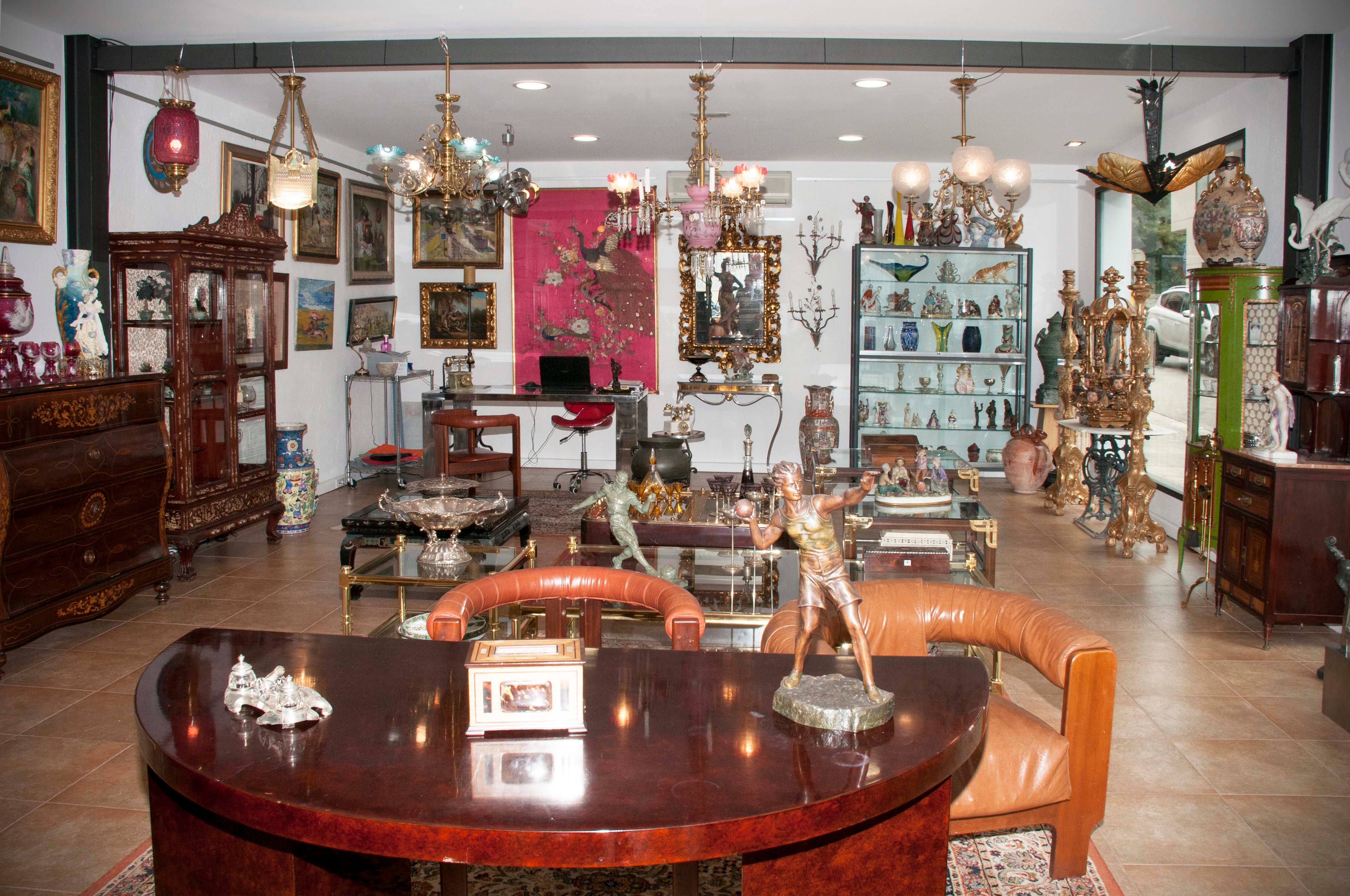
About the Seller
5.0
Gold Seller
Premium sellers maintaining a 4.3+ rating and 24-hour response times
Established in 1974
1stDibs seller since 2024
17 sales on 1stDibs
Typical response time: 5 hours
- ShippingRetrieving quote...Shipping from: Sant Celoni, Spain
- Return Policy
Authenticity Guarantee
In the unlikely event there’s an issue with an item’s authenticity, contact us within 1 year for a full refund. DetailsMoney-Back Guarantee
If your item is not as described, is damaged in transit, or does not arrive, contact us within 7 days for a full refund. Details24-Hour Cancellation
You have a 24-hour grace period in which to reconsider your purchase, with no questions asked.Vetted Professional Sellers
Our world-class sellers must adhere to strict standards for service and quality, maintaining the integrity of our listings.Price-Match Guarantee
If you find that a seller listed the same item for a lower price elsewhere, we’ll match it.Trusted Global Delivery
Our best-in-class carrier network provides specialized shipping options worldwide, including custom delivery.More From This Seller
View AllLa Grande Loge - Galerie 65 Cannes - 1964
Located in Sant Celoni, ES
Artista: Toulouse Lautrec
Año: 1964
Afiche litográfico original de Toulouse Lautrec creado en 1964 para una exposición en la Galerie 65 Cannes,
im...
Category
1960s Art Nouveau Interior Prints
Materials
Lithograph
Piensas de las mujeres - 1976
Located in Sant Celoni, ES
La litografia va firmada a mano por el artista en la parte inferior
Es una prueba de artista P/A
Año: 1976
Titulada "Piensas de las mujeres"
Medidas de la litografía (solo imagen...
Category
1970s Modern Figurative Prints
Materials
Lithograph
Litografia sobre papel - Reflejos modernistas - Tiraje: 13/250
Located in Sant Celoni, ES
Firmada a lápiz por el artista en la parte inferior y con tiraje 13/250
En buen estado de conservación
Sin enmarcar
Medidas: 58 cm x 49 cm.
Category
1970s Impressionist Figurative Prints
Materials
Lithograph
Grabado firmado a mano - Joven con pamela
Located in Sant Celoni, ES
Firmado por la artista en la parte inferior
Se presenta enmarcado
El estado del aguafuerte es bueno
Medidas aguafuerte: 62 cm. de altura x 46 cm. de ancho.
Medidas marco: 66 cm. ...
Category
Early 20th Century French School Portrait Prints
Materials
Engraving
Óleo sobre tela - Infanta - Año 1975
By Rafael Illana
Located in Sant Celoni, ES
Como pueden apreciar, la obra va firmada en la parte inferior y fechada del año 1975
En la parte trasera va nuevamente firmado
Se presenta enmarcada la obra con un fino listón de m...
Category
1970s Other Art Style Figurative Paintings
Materials
Oil
Litografia sobre papel - Dama con sombrero azul - Tiraje: 1/250
Located in Sant Celoni, ES
Firmada a lápiz por el artista en la parte inferior y con tiraje 1/250
En buen estado de conservación
Sin enmarcar
Medidas: 49 cm x 58 cm.
Category
1970s Expressionist Portrait Prints
Materials
Lithograph
You May Also Like
Le Serment - Lithograph after Aubrey Beardsley - 1970
By Aubrey Vincent Beardsley
Located in Roma, IT
Le Serment is an original litograph realized by Aubrey Beardsley in 1970.
The drawing is part of a 1970 "Eyes Open" edition. In very good conditions, along with the drawing there is...
Category
1970s Figurative Prints
Materials
Lithograph
The Comedy of the Rhinegold - Original Lithograph by A. Beardsley - 1970s
By Aubrey Vincent Beardsley
Located in Roma, IT
The Comedy of the Rhinegold is a beautiful original print on paper realized by Aubrey Vincent Beardsley.
Black and white lithograph.
The artwork is the plate n. 30 from the portf...
Category
1970s Figurative Prints
Materials
Lithograph
The Later Work of Aubrey Beardsley
Located in Bradenton, FL
The Later Work of Aubrey Beardsley. Softcover book published in 1967 by Dover Publications, Inc., of New York. Printed in the United States. Illustrated, 174 plates with two in color...
Category
Vintage 1960s American Art Nouveau Books
Materials
Paper
The Eyes of Herod - Original Lithograph by Aubrey Beardsley - 1970s
By Aubrey Vincent Beardsley
Located in Roma, IT
The Eyes of Herod is a beautiful original print on paper realized by Aubrey Vincent Beardsley.
Black and white lithograph.
The artwork is the plate n. 11 from the portfolio Eroti...
Category
1970s Figurative Prints
Materials
Lithograph
The Toilette of Salome - Original Lithograph by Aubrey Beardsley - 1970
By Aubrey Vincent Beardsley
Located in Roma, IT
The Toilette of Salome is a beautiful original lithograph on paper realized by Aubrey Vincent Beardsley.
Black and white lithograph.
The artwork is the plate n. 12 from the portf...
Category
1970s Figurative Prints
Materials
Lithograph
Messalina and her Companion - Original Lithograph by A. Beardsley - 1970s
By Aubrey Vincent Beardsley
Located in Roma, IT
Messalina and her Companion is a beautiful original print on paper realized by Aubrey Vincent Beardsley.
Black and white lithograph.
The artwork is the plate n. 26 from the portfolio Erotiques de Beardsley. Editions Les Yeux Ouverts 1970, Paris.
Specimen n°112 of an editon of 469.
The artwork includes copy of the portfolio cover.
Good conditions.
Original title: Messaline
The artwork shows an illustration realized by the artist in 1895 for the Sixth Satire , the most famous of the sixteen Satires by the Roman author Juvenal written in the late 1st or early 2nd century.
Aubrey Vincent Beardsley (21 August 1872 – 16 March 1898) was an English illustrator and author. His drawings, executed in black ink and influenced by the style of Japanese woodcuts, emphasized the grotesque, the decadent, and the erotic. He was a leading figure in the Aesthetic movement which also included Oscar Wilde and James A...
Category
1970s Figurative Prints
Materials
Lithograph
More Ways To Browse
Vintage Cues
Art Deco Woodblock Print
Bob Dylan Lithograph
Camille Hilaire Lithograph
Chiaroscuro Woodcut
Circus Clothing
Cornflower Plates
Donald Sultan Mimosa
Dufy Dress
English Sea Chests
Francoise Gilot Drawing
Gerard De Rose
Giorgio Morandi Etching
Hired Hand Bed
Ivory Skull
Jim Dine Self Portrait
Joan Miro Hand Signed Lithograph 1974
John Locke
